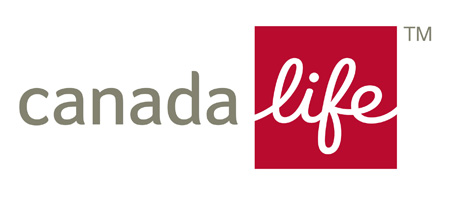Term insurance is a type of life insurance that provides coverage for a specified period, known as the “term.” It offers a death benefit to the policyholder’s beneficiaries if the insured person passes away during the term. Unlike permanent life insurance policies, term insurance does not accumulate cash value over time. It is designed to provide financial protection for a specific duration, making it a more affordable option for individuals seeking pure life insurance coverage without the investment component found in other types of policies. Once the term expires, policyholders can choose to renew the coverage, convert it into a permanent policy, or let it lapse. Term insurance is often chosen for its straightforward structure and affordability, making it suitable for those looking to secure protection for a certain period, such as during the years when dependents are financially vulnerable.
Quality comes Standard, Choose Excellence
Our commitment to quality and excellence is the cornerstone of our work ethic, ensuring that you receive the highest standard of service in every aspect of your insurance journey. From comprehensive offerings such as term and permanent insurance, disability, and business overhead coverage, to specialized solutions like critical illness and group benefits, we stand ready to safeguard what matters most to you. Explore a world of insurance services crafted with precision, delivered with dedication, and designed to exceed expectations. At YLG, it’s not just about coverage; it’s about the quality, excellence, and peace of mind we bring to every client.

Term Insurance
Permanent Insurance
Permanent insurance is a type of life insurance that provides coverage for the entire lifetime of the insured individual. Unlike term insurance, which offers protection for a specified period, permanent insurance remains in force as long as the policyholder continues to pay premiums. Permanent life insurance includes a cash value component that accumulates over time, allowing policyholders to build a savings or investment element within the policy. This cash value can be withdrawn or borrowed against during the policyholder’s lifetime, providing a source of funds for various needs. There are different types of permanent insurance, such as whole life and universal life, each with its own features and flexibility. Permanent insurance is often chosen by individuals who seek lifelong coverage and appreciate the potential for cash value growth, as well as the ability to access funds for financial needs during their lifetime.


Disability Insurance
Disability insurance is a type of coverage that provides financial protection to individuals who are unable to work due to a disability or illness. This insurance offers a source of income replacement, typically a percentage of the individual’s regular earnings, during the period of disability. It helps cover essential living expenses, such as mortgage or rent, medical bills, and daily necessities, allowing policyholders to maintain their financial stability despite being unable to work. Disability insurance can be short-term or long-term, and the terms of coverage may vary. It is designed to offer a safety net for individuals who may face income loss due to a disabling condition, ensuring they have financial support to meet their ongoing needs.
Business Overhead Insurance
Business overhead insurance, also known as business overhead expense (BOE) insurance, is a type of coverage designed to protect small businesses in the event that a business owner becomes disabled and is unable to work. This insurance is particularly relevant for sole proprietors or small business owners who play a critical role in the day-to-day operations of their businesses.
Business overhead insurance typically covers various ongoing business expenses, such as rent or mortgage payments, utilities, employee salaries, insurance premiums, and other fixed costs. The goal is to help the business maintain its operations during the owner’s disability, ensuring that essential expenses are covered while the owner focuses on recovery.
The coverage period is usually limited, and benefits are paid as reimbursement for actual overhead expenses incurred during the disability. Business overhead insurance provides financial support, allowing the business to stay afloat and continue operating until the owner can return to work or until other arrangements can be made.


Critical Illness
Critical illness insurance is a type of coverage that provides a lump-sum payment to the policyholder in the event they are diagnosed with a covered critical illness or medical condition. Unlike traditional health insurance, which typically covers medical expenses, critical illness insurance provides a cash benefit that can be used at the policyholder’s discretion.
The covered illnesses may include serious conditions such as cancer, heart attack, stroke, organ transplant, or other specified diseases. The lump-sum payment can help the policyholder cover various costs associated with the illness, such as medical treatments, deductibles, co-payments, or non-medical expenses like mortgage payments or childcare.
Critical illness insurance is designed to offer financial support during a challenging time, allowing individuals to focus on recovery rather than worrying about the financial implications of a serious illness. The policy often pays out the benefit upon diagnosis of a covered condition, regardless of whether the individual can continue working or not.
Group Benefits
Group benefit insurance is a type of coverage provided by employers to a group of employees as part of their employee benefits package. This insurance typically includes a range of benefits that contribute to the overall well-being of employees and their families. Common components of group benefit insurance may include health insurance, dental coverage, vision care, life insurance, disability insurance, and other supplementary benefits.
Group benefit plans are designed to offer cost-effective and comprehensive coverage for a large number of individuals. The employer often pays a portion of the premium, and employees may have the option to contribute to additional coverage if desired. Group benefit insurance helps attract and retain talent, enhances employee satisfaction, and provides a safety net for employees and their dependents in various aspects of their health and financial security. The specific benefits and terms of group benefits insurance can vary based on the employer’s plan and the insurance provider.

Frequently asked questions
What is the main difference between term insurance and permanent insurance, and which one is more suitable for business owners?
Term insurance provides coverage for a specific period, offering a straightforward, cost-effective solution. Permanent insurance, on the other hand, covers the insured’s entire lifetime and includes a cash value component. For business owners seeking affordable coverage during key business years, term insurance may be ideal. Those looking for lifelong protection with potential cash value growth might consider permanent insurance.
Why do healthcare professionals need disability insurance, and how does it differ from other types of coverage?
Disability insurance is crucial for healthcare professionals as it replaces lost income if they are unable to work due to a disability. Unlike health insurance which covers medical expenses, disability insurance provides a source of income to maintain financial stability during a disability, ensuring ongoing expenses are covered while focusing on recovery.
What does business overhead insurance cover, and why is it essential for small business owners?
Business overhead insurance covers essential business expenses like rent, salaries, and utilities in the event of a business owner’s disability. This ensures the business can continue operations during the owner’s absence, preventing financial strain. Small business owners, especially sole proprietors, find it crucial to maintain business continuity during unexpected health challenges.
How does critical illness insurance complement healthcare coverage for business owners and their employees?
Critical illness insurance provides a lump-sum payment upon diagnosis of covered conditions, allowing flexibility in covering various expenses. It complements healthcare coverage by offering financial support for non-medical costs, such as mortgage payments or childcare, helping both business owners and employees navigate the financial challenges associated with a serious illness.
What benefits does group benefit insurance offer to businesses and their employees?
Group benefit insurance is a comprehensive package covering health, dental, vision, life, and disability insurance for employees. It helps businesses attract and retain talent, boosts employee satisfaction, and provides financial security for employees and their families. By offering a range of benefits, businesses can create a healthier, more secure work environment.
Our Partners







